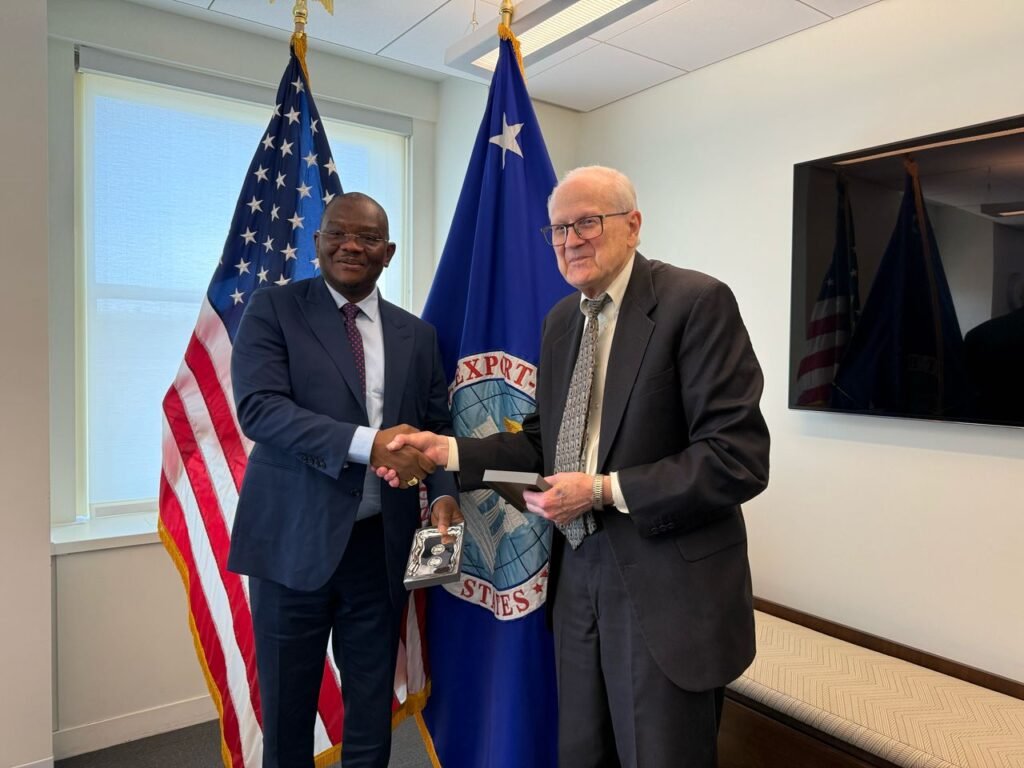Hot!
He gave me water and continued to strangle me – Matilda Amissah-Arthur recounts terrifying robbery

Former second Lady, Matilda Amissah-Arthur, the wife of the late former Vice President Paa Kwesi Amissah-Arthur, has narrated how she was robbed and almost killed in her bedroom on Tuesday, December 5, 2023.
According to Mrs Amissah-Arthur’s account, the intruder, dressed in black, broke into her room, demanding money and threatening to kill her and anyone who might come to her aid.
Despite handing over $2,200 and 50 euros, the robber was displeased with the amount and turned her room upside down, searching for more valuables.
In a video in which Mrs Amissah-Arthur was giving a testimony, she said the attacker vowed to kill her and anyone who tried to save her, hence her compliance.
In a bizarre twist, Mrs Amissah-Arthur requested water during the ordeal, and the attacker obligingly fetched it from her fridge.
However, instead of showing mercy, he callously continued strangling her after she took a sip.
“I thought I was dreaming. So, I sat on my bed and rubbed my face just to be sure that I wasn’t dreaming. And there he was standing there, and he said, if you shout and somebody comes, I’ll kill them and kill you. So, I was sitting on my bed, and he said give me the money,” she narrated.
According to her, “We were renovating our mother’s house so my siblings brought money and the money was with me. Quickly, I took the $2,200 dollars and gave him, and I had 50 euros of my own and I gave him, and I took my purse, gave the cedis to him, then he counted the money and said, this small money.”
“He got angry. He turned my room upside down, and of course, he didn’t find money or any jewellery. And then he said, ‘You wasted my time, so I will kill you. But I have to call my boss.’ By this time, he had dragged me from the bed and was hitting my head on the ground,” she revealed.
“He spoke on the phone for a couple of minutes and said, ‘My boss says I should shoot you, but I won’t shoot you, I will strangle you so that you’ll die a slow death and next time you come, you’ll have money.’ So, he started strangling me.”
“I got thirsty at some point, and I said, “I am thirsty.” He stopped strangling me, went to my fridge for water, opened it, and put it in my mouth, just when I started drinking, he snapped it, closed it, and continued strangling me,” the former First lady Concluded.
Source: Citinewsroom.com
Hot!
GEXIM deepens relations with US EXIM Bank

A management team of the Ghana Export – Import Bank (GEXIM) led by the Acting Chief Executive, Sylvester Mensah met with the leadership of the Export–Import Bank of the United States (US EXIM) on Wednesday April 23, 2025 in Washington DC, United States of America.
The Acting President and Chairman of US EXIM, Mr. James C. Cruse and Vice President, International Relations, Ms. Isabel Galdiz received the GEXIM delegation, which included Deputy CEO for Banking, Mr. Moses Klu Mensah and Head of International Cooperation, Mr. Jonathan Christopher Koney at the headquarters of US EXIM.

The meeting offered the GEXIM team the opportunity to share the strategic direction of the Bank in line with the resetting agenda of the President of the Republic, His Excellency John Dramani Mahama for the repositioning of the Ghanaian economy into an export-led one by providing the requisite investment to Ghanaian businesses.
Mr. James C. Cruse expressed US EXIM’s eagerness to deepen its existing relations with GEXIM and proposed the signing of a new Cooperative Framework Agreement following the expiration of a Memorandum of Understanding signed in 2019 to utilize US EXIM’s medium term loan guarantees to procure machinery by GEXIM for qualified Ghanaian Small and Medium-sized Enterprises (SMEs).
Mr.Sylvester Mensah thanked the Acting President and Chairman of US EXIM for hosting the GEXIM delegation and reaffirmed the Ghanaian government’s commitment to strengthening trade and investment between Ghana and its global partners for economic transformation of Ghana with GEXIM playing a pivotal role.
The two teams will be meeting on the sidelines of the 2025 US EXIM Annual Conference on 29th and April 30, 2025 to explore possible areas of collaboration and matching Ghanaian businesses to American companies. The meeting ended with an exchange of gifts.
Hot!
Many SOEs have been used as mere instruments for personal wealth accumulation –Pres.Mahama

President John Dramani Mahama has expressed concern over the misuse of State-Owned Enterprises (SOEs) for personal financial gain by individuals in leadership positions.
Speaking during a meeting with Chief Executives of specified entities under the State Interest and Governance Authority (SIGA) on Thursday, March 13, the President directly attributed the dire state of SOEs to their leadership, accusing chief executives, management teams, and governing boards of prioritising personal enrichment over organisational efficiency.
He pointed to bloated budgets, unjustified allowances, and unnecessary expenditures as factors draining public funds while SOEs continue to rely on government bailouts.
“Many SOEs have been used as mere instruments for personal wealth accumulation by appointees. The chief executives, management, and boards of these enterprises are responsible for this situation. Some SOEs have become perennial loss-makers, draining public funds with bloated budgets, unjustified allowances, and unnecessary expenditures while relying on government bailouts as if entitled to them. Many of these entities are at their lowest point in the entire history of the Fourth Republic,” he said.
President Mahama further noted that many SOEs have been plagued by inefficiencies, corruption, and mismanagement, leading to consistent financial losses. He cited the 2023 State Ownership Report by the State Interests and Governance Authority (SIGA), which highlighted systemic inefficiencies and wasteful expenditures within these entities.
He therefore reaffirmed his commitment to reforming under-performing SOEs and ensuring they serve national interests.
He warned that loss-making SOEs will no longer be tolerated and will either be merged, privatised, or closed.
“I will assess you based on your performance. If you do not align with the pace of the reset agenda, you may be asked to step aside. If that adds to the horror movie, so be it,” he added.
Source: Myjoyonline.com







